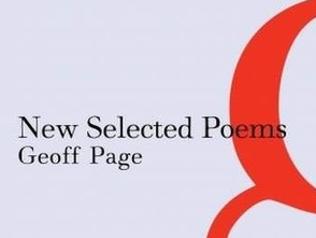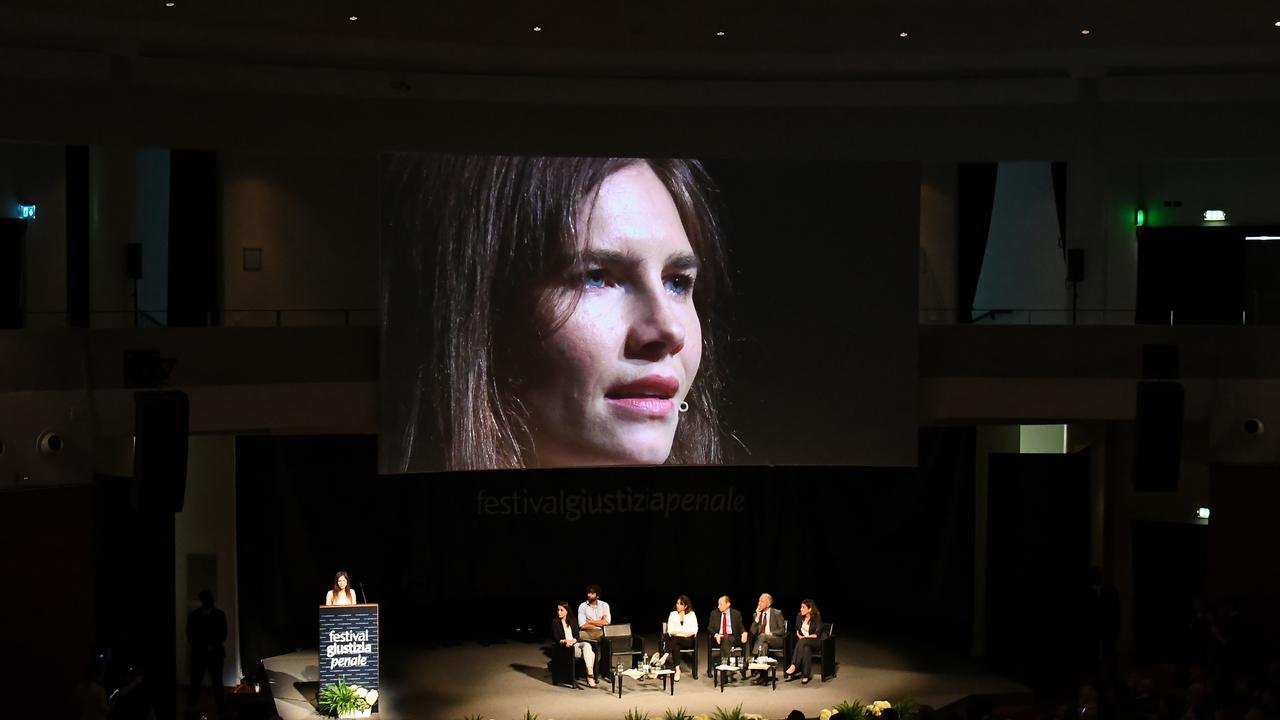Poets of the pastoral
POETS Geoff Page, Alan Gould and newcomer Todd Turner are presenting their efforts in new anthologies.

IN these pages recently Geoff Page reviewed three new and selected volumes. He noted at least three possible ways of presenting a poet’s work: start with the ”new’’ and arrange other poems from earliest to most recent; start with the earliest and work through to the latest; or opt for reverse chronological, finishing ‘‘where the poet began’’.
Page’s assured New Selected Poems (Puncher and Wattman, 291pp, $29.95) is a similar but different beast. There is no ‘‘new’’ as such, but a ‘‘new selected’’. (Page published a Selected Poems in 1991.) The most recent work reproduced is from his 2007 collection Seriatim. A prolific poet — as well as a refreshingly clear-eyed reviewer — Page has published more than 20 books in an outstanding career spanning more than four decades. For what effectively is a ‘‘best of’’ he has omitted his verse novels, translations and travel chapbooks. What remains is presented chronologically.
The opening four poems from 1971 suggest the imagists in their spare language and short lines. Indeed, one of the poems is titled For William Carlos Williams. This simplicity endures in the years that follow, but a more emotive tone, one you sense comes more naturally, asserts itself.
The war dead, the poet’s parents, the property he grew up on, hold too much emotional resonance for Page simply to add one unadorned image to another. Smalltown Memorials and Inscription at Villers-Brettonneux (“unfallen / rain still hanging in the air ... Headstones // speak a dry consensus”) are fine early examples of Page’s elegiac takes on war.
Last Draft and Departure and Return are moving addresses to the poet’s mother and father, respectively, the latter also recording his departure from, and attachment to, the property his father worked and his brothers (“who grew into your debts and weather”) inherited.
The subjects — the aftermath of war, the rural world, histories personal and national — have remained staples for Canberra-based Page ever since.
Mortality is another recurring theme. Love at the End is both tender love poem and stark visioning of death, when “Fingers linked, we move towards that last / stopped moment when one will hand the other through // alone / to disbelief / and silence”. Closer to mid-career, Clairvoyant in Autumn sees Page again vividly imagining his death, his body “dressed for work / and patient in a box”, friends obliged to don a tie and endure “the slow ride to the edge of town”. These are not self-indulgent musings but careful meditations borne of the poet’s agnosticism and affection for those around him.
The rejection of religious and political fundamentalism gains traction as the selection advances. The Secret ponders the day when prayers became “radiation only / fading into space”. The Stalinists, The Taliban condemns atrocities prosecuted under extremist ideologies. The final lines in this ‘‘selected’’ note: “I love the sad, / agnostic god / who taught me how to doubt” — a foretaste of explorations in Page’s 2012 collection Cloudy Nouns, which is not represented here.
The pastoral has never been far from Page’s reach, and many fine examples appear. Sometimes, nostalgia overtakes reminiscences on of the family farm. Similarly, Page’s political critiques can become didactic. But the finest poems, such as A White Beach to Dance On, persuade via a tough voice that nevertheless evokes empathy.
In his recent review, Page noted a chronological ‘‘selected’’ offers “a sense of the poet’s development, including their stylistic changes through the decades”. Page’s own selection does not evidence radical style changes, but he muses metapoetically in I Think I Could Turn Awhile on writing “like the Americans” who “do not hear the iamb ticking, tetchy with its small demands”. As his career progresses, Page lets the iamb tick. The quatrain, with rhyming second and fourth lines, structures many later poems — even if, as this excellent ‘‘selected’’ shows, Page prefers his world ideologically unstructured.
Alan Gould locates his verse cheerfully, unerringly in traditional forms. Along with Stephen Edgar he is probably Australia’s foremost practitioner in formal verse. In his latest collection, Capital (Puncher and Wattman, $154pp, $25), rhyming couplets, and quatrains with an ABAB rhyme scheme, mostly in iambic metre, abound.
Gould is a near-compulsive rhymer. This can bestow on serious subjects an unintended lightness, so it is probably a good thing his default temper is mostly humour. Gould writes with enormous wit, but the immaculate rhyme schemes occasionally inhibit a broader emotional range. Never afraid to tackle meaty philosophical issues, Gould meditates here on the ‘‘self’’ — how it is constituted, how it might disassemble. In the superb Late Sun in February, which invokes Emily Dickinson, these concerns intersect with the natural world: “So what’s the self? A slant of light / that must move on yet stay in sight?” The whimsical Sweet Nothings on the Nerve posits: “So what was self, if not to give / a nothing that insists it live”. The self is only briefly ignited in a blank universe, but the lightness of being proves quite bearable.
Like Page, Gould is Canberra-based. His The Little White Car is a humorous poem penned for Page’s 70th birthday, but he also shares with Page reflections on parents, landscape and mortality. Neither poet is given to the maudlin, and The Quarrel with Self and The Sea at My Ear sees Gould bring intelligent whimsy to ageing and death.
Sex is another Gould subject. He lets rip with full-frontal, lusty verse: “... like Congo chimps that dare / to bonk from swaying creepers / orgasming through the air / above the jungle’s gapers ...” (Then Why Not Slip My Button?). Tom Jones meets Andrew Marvell, if you like. Occasionally the gender politics, like the form, seem dated, but mostly Gould’s women make their wants exceedingly plain.
Also like Page, Gould is a keen political satirist. The title work is a comic opera libretto that sees Walter Burley Griffin, abetted by his spirited wife Marion, plan the birth of Canberra. By Scene Two the Griffins, along with King O’Malley, have been transported to the present day, when ‘‘capital’’ denotes money as much as it does the centre of political power. A wonderful burlesque reminiscent of Louis Esson’s 1912 play The Time is Not Yet Ripe, this libretto reads brilliantly on the page. Let’s hope before the next election it gets an airing on stage. Todd Turner is a younger poet, and Woodsmoke (Black Pepper, 56pp, $24.95) is his debut collection. Although Turner was born and reared in Sydney’s west, it is the pastoral realm that occupies him and makes him an heir to the more mature poets reviewed here, Page in particular. The poet’s parents lived in farming communities before moving to Sydney in 1959, and this slender collection draws heavily, and with great affection, on family and rural experience.
The strong opening poem Shelling Peas sets the tone, the rhythm of pea shelling captured in the refrain to each stanza, the poem a testament to the dignity of simple tasks. The title poem denotes woodsmoke as the signature of time and “what passes for benediction”, a “plait” wending through land and the collection. Mellowed Fruit is a prayerful poem to the farmworker. Other poems fondly record the poet’s father working the land, and Homecoming is a touching account of a brother’s death.
Drawing strongly from English pastoral traditions — right down to the preference for ‘‘fields’’ over ‘‘paddocks’’ — these poems are a country mile from the recent Black Rider anthology Outcrop: Radical Australian Poetry of Land. The disrupted landscape of that anthology will grant some readers little foothold, but amid Turner’s rustic calm one might long for a mobile phone to ring and snap the verse into a post-pastoral 21st century.
In Nocturne, the poet stands in “the neon blaze of the electric / light of the refrigerator door” while his daughter sleeps. It’s a superb image, and an instructive one. Sometimes, you need to douse the fire and go electric.
Anthony Lynch is a Victorian writer, poet and critic.


